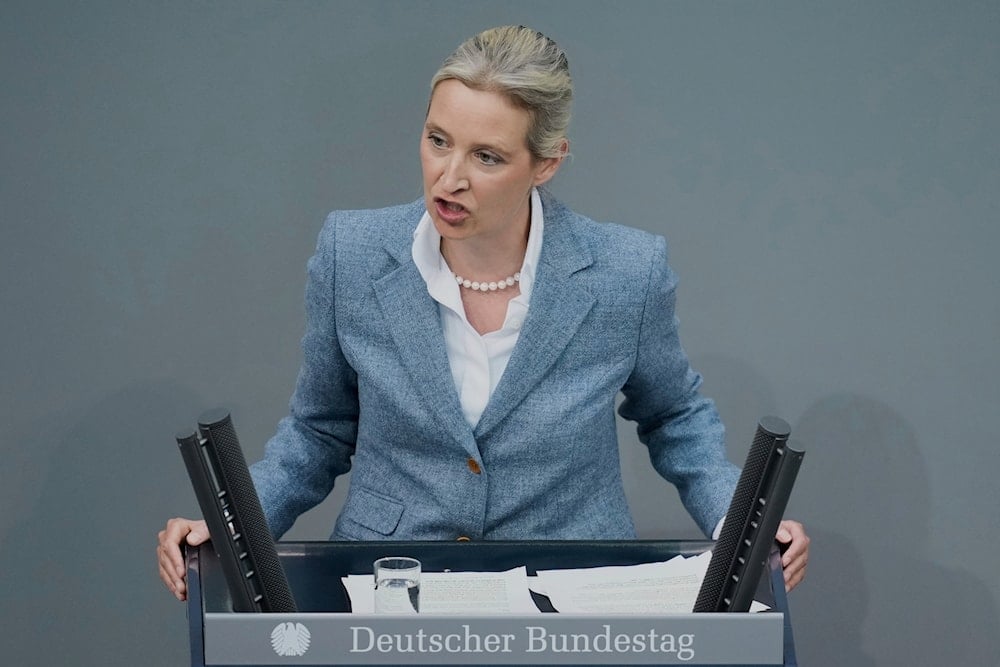Germany suspends AfD's extremist classification
Germany’s BfV suspends its classification of the AfD as a right-wing extremist group amid a legal challenge, as party leaders Alice Weidel and Tino Chrupalla defend their position.
-

Alternative for Germany (AfD) party co-leader Alice Weidel speaks during a meeting of the German federal parliament, Bundestag, at the Reichstag building in Berlin, Germany, on March 13, 2025. (AP Photo/Ebrahim Noroozi)
Germany’s domestic intelligence agency, the Federal Office for the Protection of the Constitution (BfV), has temporarily suspended its classification of the Alternative for Germany (AfD) as a "confirmed right-wing extremist" group. The decision, announced on Thursday, comes in response to a legal appeal filed by the party.
The BfV also removed the official press release regarding the classification from its website.
The suspension follows a lawsuit filed by the AfD in a Cologne court, where the party claimed the designation was politically motivated and unsupported by evidence.
The BfV had reportedly based its classification on a report asserting that the AfD promotes exclusionary policies targeting migrants, particularly Muslims, and uses inflammatory language such as “knife-wielding migrants” to link violence with non-European ethnic groups.
That said, while the suspension of the AfD's extremist classification halts expanded surveillance, Germany’s BfV will continue monitoring the party as a “suspected case”, allowing limited surveillance under tighter judicial oversight.
AfD co-leaders Alice Weidel and Tino Chrupalla welcomed the court-ordered suspension of the party's extremist classification, calling it "a first important step" toward clearing the party’s name, describing the original designation as a "severe blow to German democracy," and arguing that the intelligence agency’s actions were politically motivated attempts to undermine their electoral legitimacy.
Had the designation remained in place, the BfV would have been empowered to deploy expansive surveillance measures, including informants and electronic monitoring, against the party. While the AfD is still classified as a "suspected case," the current status allows limited oversight under tighter judicial constraints.

 2 Min Read
2 Min Read








